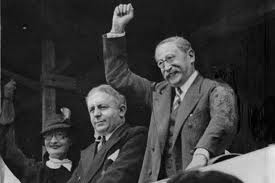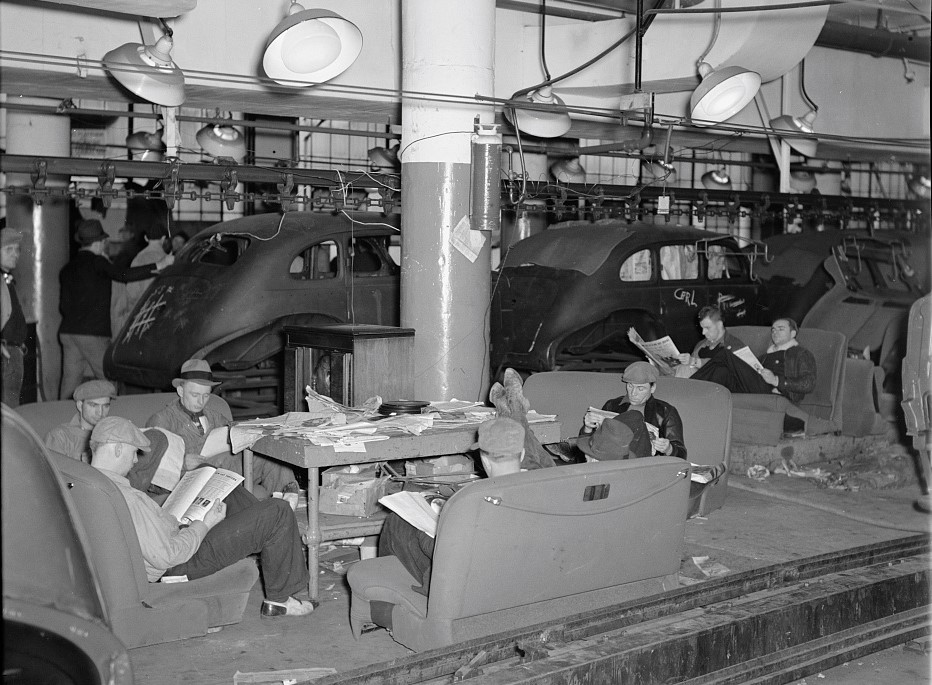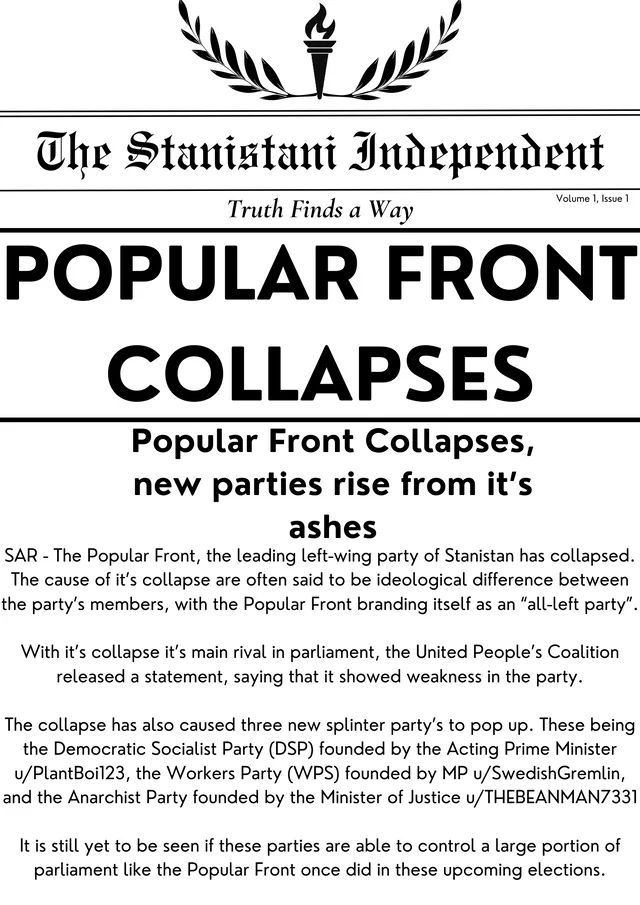Photo AI
Last Updated Sep 26, 2025
The Popular Front Government and the Government of National Defence Simplified Revision Notes for Leaving Cert History
Revision notes with simplified explanations to understand The Popular Front Government and the Government of National Defence quickly and effectively.
494+ students studying
The Popular Front Government and the Government of National Defence
The Popular Front Government - Key Context
- The Popular Front government emerged in response to the events of February 1934 and the rise of right-wing leagues. This coalition brought together left-wing parties, including the Socialists, Communists, and the Radical Party.
- The main motivation for the Communists, driven by directives from Moscow to counter the rise of Nazism in Germany, was to collaborate with other parties against Fascism.
- On Bastille Day, July 14, 1935, nearly 400,000 people marched in Paris, showing strong support for the Popular Front. In early 1936, they published their program, advocating for economic and social reforms, collective security, and the abolition of the leagues.

- Their slogan, "Bread, Peace, and Liberty," emphasised their focus on social justice.
- The Popular Front won the 1936 general election with a clear majority, and Socialist leader Léon Blum became Prime Minister. This victory marked a significant shift in French politics, aiming to address the economic hardships and social inequalities of the time.
Sit-in Strikes and the Matignon Agreement
-
The victory of the Popular Front raised workers' expectations for improved conditions. This led to a spontaneous wave of sit-in strikes across the country, bringing industry to a halt.
-
Faced with this crisis, Prime Minister Blum convened a conference at the Hotel Matignon with employers and the CGT, the trade union federation.

-
The resulting Matignon Agreement included significant concessions: a 12 percent wage increase, a forty-hour workweek with paid holidays, and the nationalisation of the armaments industry and the Bank of France. These measures were initially well-received, as they addressed workers' demands while avoiding revolutionary upheaval.
Pause in Reforms
- Despite initial successes, economic problems persisted.
- The government's borrowing to cover costs led to the devaluation of the franc, reducing export competitiveness. Inflation remained high, and industrial production struggled to recover.
- By March 1937, Blum called for a pause in reforms, recognising the need to stabilise the economy.
Collapse of the Popular Front
- Blum's attempts to implement economic policies through decree laws were thwarted by the Senate, leading to his resignation in June 1937.
- Frustrated by repeated blockages, he stated, "Everything I attempted to do has been blocked." Subsequent Popular Front governments also failed to resolve France's economic difficulties.
- By April 1938, the Popular Front collapsed, replaced by the conservative Government of National Defence, headed by Edouard Daladier of the Radical Party.

Government of National Defence
- The new government reversed many of the Popular Front's reforms, favouring policies that benefited business interests.
- They rolled back the forty-hour work week and cut government spending. In response, the CGT organised a one-day strike in November 1938, which was met with a harsh crackdown by the government. This response weakened the left-wing, reducing union membership and diminishing their influence.
Problems Continue
- By 1939, France's societal issues remained unresolved. The population was affected by the loss of 1.3 million men in World War I, and a declining birth rate exacerbated labour shortages. The reliance on migrant labour increased social and political tensions.
- Agriculture remained inefficient, protected by tariffs that kept farm prices high. The industrial sector struggled with small-scale production, impeding economic reform efforts. Overall, France's economy remained backward, characterised by significant class conflict and political instability.
- The frequent changes in government between 1920 and 1939, driven by the interests of small producers, traders, and farmers, prevented substantial improvements and left France ill-prepared for the challenges of World War II.
500K+ Students Use These Powerful Tools to Master The Popular Front Government and the Government of National Defence For their Leaving Cert Exams.
Enhance your understanding with flashcards, quizzes, and exams—designed to help you grasp key concepts, reinforce learning, and master any topic with confidence!
328 flashcards
Flashcards on The Popular Front Government and the Government of National Defence
Revise key concepts with interactive flashcards.
Try History Flashcards36 quizzes
Quizzes on The Popular Front Government and the Government of National Defence
Test your knowledge with fun and engaging quizzes.
Try History Quizzes29 questions
Exam questions on The Popular Front Government and the Government of National Defence
Boost your confidence with real exam questions.
Try History Questions27 exams created
Exam Builder on The Popular Front Government and the Government of National Defence
Create custom exams across topics for better practice!
Try History exam builder117 papers
Past Papers on The Popular Front Government and the Government of National Defence
Practice past papers to reinforce exam experience.
Try History Past PapersOther Revision Notes related to The Popular Front Government and the Government of National Defence you should explore
Discover More Revision Notes Related to The Popular Front Government and the Government of National Defence to Deepen Your Understanding and Improve Your Mastery
96%
114 rated
Politics and Administration in France - Third Republic and Vichy State
Government and Politics in France Post WW1
281+ studying
196KViews96%
114 rated
Politics and Administration in France - Third Republic and Vichy State
The Great Depression in France and its Effects
307+ studying
188KViews96%
114 rated
Politics and Administration in France - Third Republic and Vichy State
French Foreign Policy in the 20's and 30's
453+ studying
196KViews96%
114 rated
Politics and Administration in France - Third Republic and Vichy State
The Defeat of the Third Republic
448+ studying
181KViews